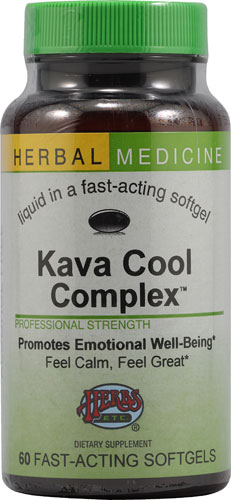As children, we were deeply connected to the Earth: We walked barefoot on the grass and sand, felt the trunks of trees with our hands, and savored the splendid sensations that nature effortlessly affords us.
But as we get older—and as life goes from seemingly timeless to jam-packed with obligations—we lose that initial connection we had with the planet. This isn’t hearsay, either: A recent report out of the Environmental Protection Agency revealed that the average American spends a whopping 93% of his or her time indoors. Perhaps it’s inevitable for some, sure—but is it working against us?
Advocates of grounding say yes. Based on the precept that nature’s energy rebalances and replenishes us, “grounding” promotes getting intimate with the Earth again. By rediscovering our connection with the planet—literally—the technique is credited for naturally supporting a number of health woes, from diminished depression to fewer hot flashes.
Sounds fantastic—but what exactly is grounding?
Two definitions are generally offered. The first is finding your “center” in the present moment—a swift and effective practice that entails taking a deep breath, concentrating on feeling your body/placement in the world, and focusing on what’s directly in front of you—in sum, feeling in the moment.
The second and more controversial is “grounding,” or, as some call it, “Earthing”—the notion that’s mentioned above. “In short, Earthing restores and maintains the human body’s most natural electrical state, which in turn promotes optimum health and functionality in daily life,” says James L. Oschman, Ph.D. and author of Energy Medicine: The Scientific Basis. “The moment your foot touches the Earth, or you connect to the Earth through a wire, your physiology changes. An immediate normalization begins. And an anti-inflammatory switch is turned on. People stay inflamed because they never connect with the Earth, the source of free electrons which can neutralize the free radicals in the body that cause disease and cellular destruction. Earthing is the easiest and most profound lifestyle change anyone can make.”
“Easiest” indeed. Grounding requires little more than taking off your shoes and socks and stepping on the ground. As one of the biggest proponents of grounding, Scott Jeffrey, says, “grass, stone, sand, or dirt work best.” The key, he also says, is to ensure that both feet are on the ground: “As in forming any electrical circuit, you need two points of contact. One foot on the Earth won’t ground you, but two feet will.” Prefer to, well, really ground down? “If you’re lying on the ground, you can use any two connection points to form a circuit, an elbow and a foot,” Jeffrey advises.
While naysayers suggest that we don’t have enough evidence to support the practice’s claims, supporters insist on a wide range of benefits, including increased energy and improved blood flow. Some science, too, backs up its benefits. In an extensive study published by the National Institutes of Health, grounding was found to “normalize” cortisol levels, encourage better sleep, decrease inflammation, and improve the body’s immune response. “The very fabric of the body,” researchers of the study write, “appears to serve as one of our primary antioxidant defense systems…it is a system requiring occasional recharging by conductive contact with the Earth’s surface—the ‘battery’ for all planetary life—to be optimally effective.”
But perhaps one of the most appealing aspects of grounding is its capacity to reduce emotional stress—a potential that has spurred therapists to urge their clients to go outside, get out of their shoes, and onto the ground. As U.S. News and World Report writes, “there’s plenty of research on the health benefits of connecting with the Earth. Research has shown that taking group nature walks, for example, is linked with lower depression, less stress, and better mental health and well-being.” Additional research has demonstrated that grounding in a more expansive way—taking what’s been dubbed "forest baths"—can bolster our white blood cell count, thereby helping us ward off viruses and other major illnesses. And even without scientific data under our belts, we all know the immediate relief that arrives with stepping outside, breathing in the fresh air, and feeling the sand or grass or dirt between our toes—preferably as the sunshine washes over us.
So, should you do it? Absolutely—but with some cautious optimism, as, again, research has yet to definitively prove that the exercise has as many health benefits as what’s been asserted. But for those who are prone to anxiety or depression, the technique may offer relief. A study released by the U.S. National Library of Medicine showing that an hour of contact with the Earth is more effective at boosting mood than an hour of relaxation alone.
As Tracy Latz, M.D., also says, “Reconnecting with the Earth can assist with an improved sense of safety. By improving sleep architecture, Earthing can also help normalize serotonin levels in the brain as it decreases cortisol.” (When this anxiety-inducing hormone is high, we can exist, often without knowing it, in a “fight or flight” panic response that can wreak havoc on our health.) “As cortisol levels decrease and stabilize,” Latz continues, “we become more centered, peaceful and calm.” Merely being outdoors, at the whim of nature and in touch with the land, also encourages deep breathing and a sense of mindfulness—features of meditation that have been linked to benefits ranging from decreased anxiety to relief from tension headaches. Feeling your feet on the ground is to feel yourself precisely in the here and now, a place that’s away from the conflicts of the past and the uncertainties of the future. In other words? Knock your own socks off—and get outside.




